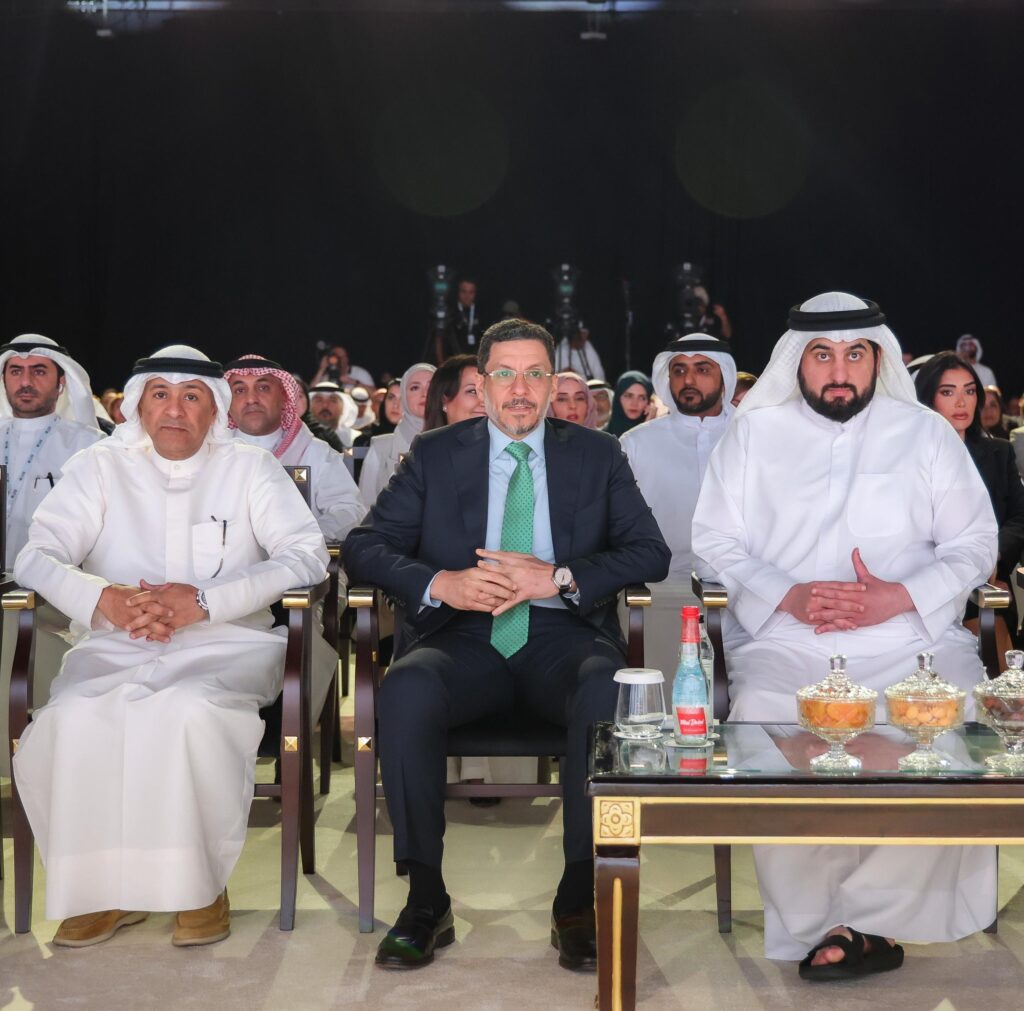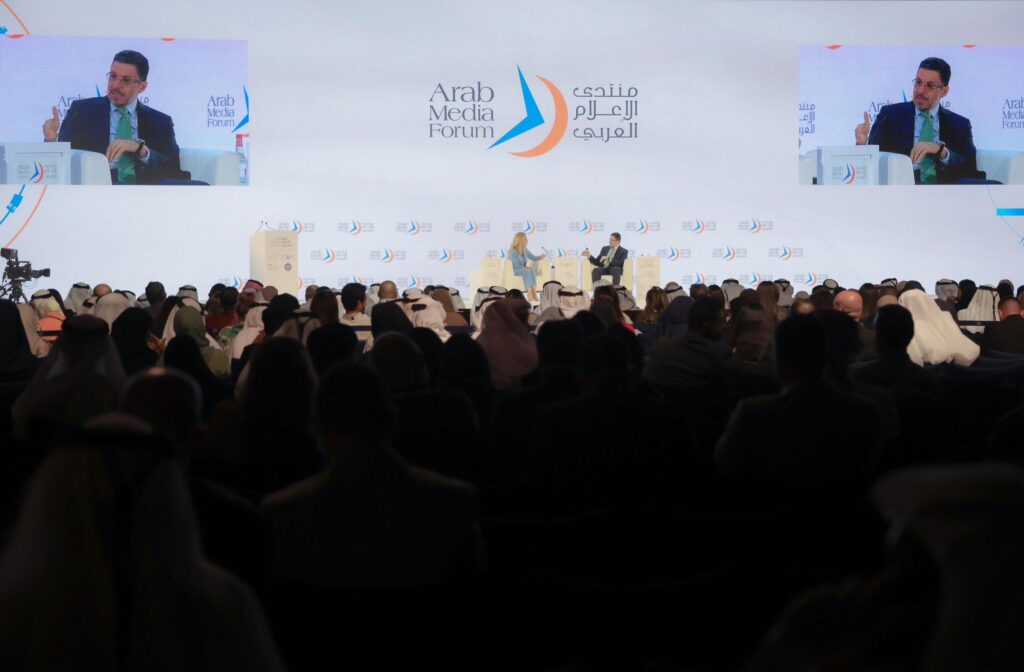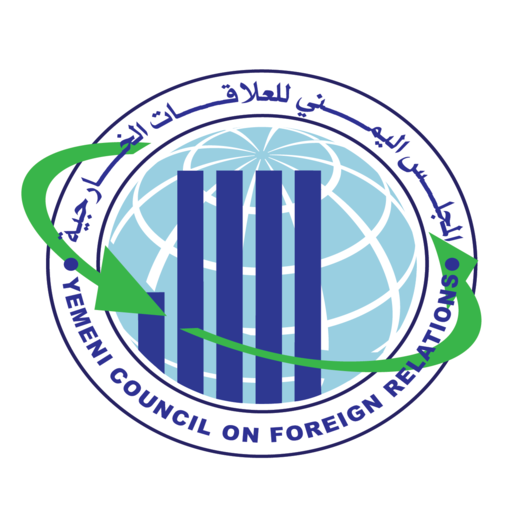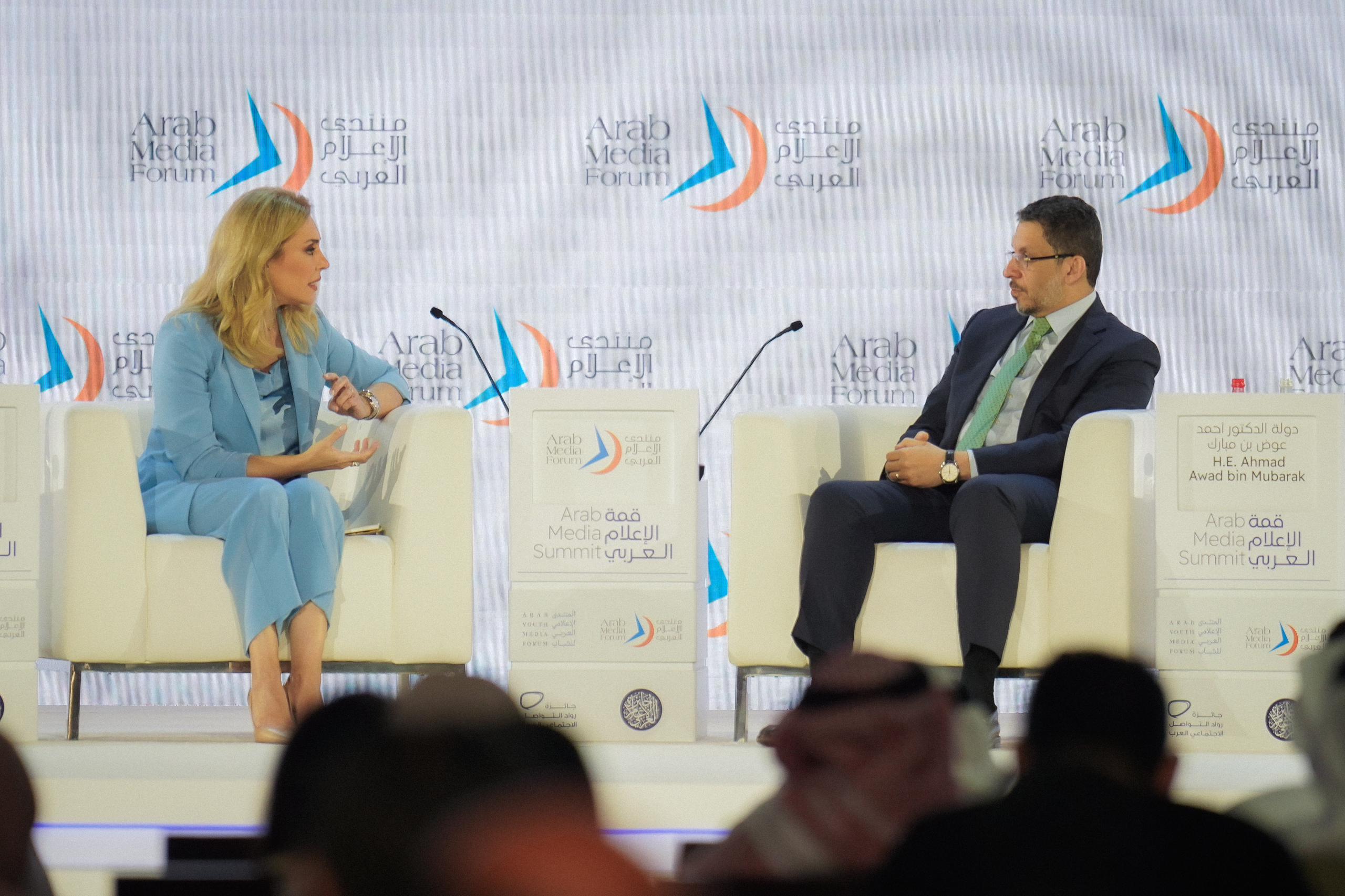The Arab Media Forum in Dubai saw a standout participation from Yemeni Prime Minister Dr. Ahmad Awadh bin Mubarak, who spoke at a major dialogue session about Yemen’s future.
The session, attended by a constellation of prominent figures, included the Deputy Ruler of Dubai and Chairman of Dubai Media Council, His Highness Shaikh Ahmad bin Muhammad bin Rashid Al Maktoom, and the Secretary General of the Gulf Cooperation Council, Jasim Al-Budaiwi, alongside many politicians, ministers, media leaders, editors-in-chief of newspapers and digital platforms, a selection of prominent writers and thinkers, opinion leaders, media makers, and those concerned with media in the region and the world.
The dialogue was moderated by journalist Zaina Yazigi, where the Prime Minister touched on various aspects of the Yemeni crisis and its dimensions, starting with correcting the false narratives surrounding the issue, reaching the explanation of the keys to the right interaction with the complex Yemeni scene, and highlighting the challenges facing the country, most notably the existential threat posed by the Houthis to the security of Yemen, the region, and the world.
The Prime Minister, in his speech at the forum, renewed Yemen’s commitment to its Arab identity and its return to its strategic and vital role as the first homeland of Arabism. He outlined the urgent challenges that concern the Yemeni citizens and are at the top of his priorities as Prime Minister, emphasizing the importance of addressing the root cause of the problems facing the country, which is the Houthi coup against the legitimate authority and the igniting of the war.
Dr. bin Mubarak explained that restoring security and stability to Yemen without addressing the root cause of the problem will lead to recurring crises, and development and stability will not be achieved.
He also discussed the catastrophic direct effects of Houthi attacks on crude oil facilities, which deprived the government of more than 70% of its resources, led to weak service provision to citizens, and exacerbated humanitarian suffering.
He pointed out that after the piracy and Houthi attacks on commercial ships and international navigation in the Red Sea, countries of the world and decision-makers in the international community returned to what the Yemeni government had been talking about: that failure to end the coup in Yemen and the Houthis’ connection to an external agenda would create disasters in the region and the world. He explained that the government’s top priority is to find a real approach to addressing the problem in Yemen and the need to empower a strong government capable of providing real services to its people and defending its interests.


Dr. bin Mubarak also outlined the prospects for peace and the future in Yemen, highlighting the Houthis’ avoidance of peace obligations, the ideological and doctrinal aspects of their project, and the failed peace milestones – from the Kuwait and Stockholm negotiations to the latest road map, which saw great efforts from Saudi Arabia and Oman and was adopted by the UN. He emphasized that the peace map for Yemen is clear, and the road map offers a practical proposal and confidence-building measures leading to a comprehensive ceasefire and entering a political process.
He reiterated that peace is the only strategic option for the legitimate government and Yemen, and the region needs security and stability to end the suffering of the Yemeni people and stop the war, which requires international pressure and efforts to push the Houthis toward peace.
The Prime Minister debunked the Houthis’ claims of supporting Gaza and the false narratives linking the escalating situation in the Red Sea. He asserted that the Houthis’ piracy in the Red Sea and threats to international navigation began two years before the Israeli aggression on Gaza, and there are UN reports on this, making the current events a way to escape the obligations of peace.
He said: “Those who blow up houses over the heads of their residents, mosques, and schools, those who besiege entire cities like they have been doing in Taiz for over ten years, those who snipe children on their way to school and women on their way to water wells, have no moral basis to claim they are fighting for a just cause like the Palestinian cause.”
He explained that many misconceptions within Western society about the Yemeni crisis have led to flawed policies and are starting to change; they used to say that the Houthis posed no regional or international threat and would not target international interests, but now they are doing just that. It was also often said that there was no real connection between this group and Iran and that they had no real influence. However, recent events have proven that they are part of that agenda.
Dr. bin Mubarak touched upon the important role of media in raising awareness and understanding issues, particularly in countries facing war, and that media can be a powerful tool, but can also be a tool of weakness leading to further misuse of various issues.
The Prime Minister concluded his speech with a hopeful message, evoking the greatness of Yemen, where civilizations are born, its great people, its strategic location, and its untapped wealth. He said: “Whenever I look at our situation, I look at this status and I feel that we are strong despite the difficulties we face. Everything we offer our people is nothing compared to the magnitude of their sacrifices, and no matter how much we provide, it is not enough, we have a strong support system in our brothers in Saudi Arabia and the UAE. We feel that we have a just cause and are eager for peace, but we are also keen to maintain Yemen’s Arab identity and its return to its important strategic and vital position. We have determination and will.”

